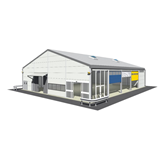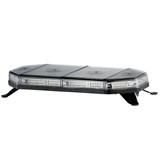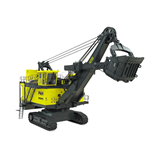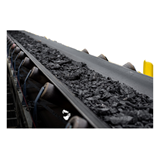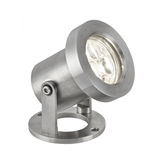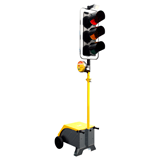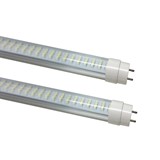The inquiry’s report, 'Cancer of the bush or salvation for our cities?', was tabled recently by Independent MP Tony Windsor. It states that the inquiry committee was 'frustrated by a lack of data' relating to the 'direct and indirect health impacts of the FIFO lifestyle'.
The ability of the inquiry to make evidence-based recommendations in relation to these issues was hindered by having to rely on anecdotal information about health impacts, including alcohol and other drug use, poor diet, physical inactivity and mental health issues.
"Our study was running at the same time as the inquiry. We’re currently in the process of analysing the data and writing it up," Dr Liz Temple of the School of Health Sciences at UB said.
"On reading the inquiry’s report it became clear that we have data on a number of the issues where the report noted there was a need for empirical evidence."
Mitch Hooke, CEO of the Minerals Council of Australia, responded to the report by noting: "The report recommends a number of policy measures to deal with the FIFO 'phenomenon' despite acknowledging there is a 'dearth of empirical evidence' on long distance commuting. This is like a doctor prescribing medicine before diagnosing the patient".
This data was collected for a study investigating the lifestyle and wellbeing of FIFO/DIDO employees in the Australian mining sector.
The study was initiated last year in response to concerns Michelle Sipek, then a Postgraduate Diploma of Psychology student at UB, had in relation to the impact FIFO employment was having on her partner.
"Not to say that a FIFO lifestyle is entirely a negative experience, but nothing can prepare a person for the feeling of seeing their significant other under extraordinarily high stress and being half a country away and not being able to help in any way," Sipek said.
But, as a student needing a research project, Sipek could do something.
Under the supervision of Dr Temple and Dr Jackie Tuck from The Business School at UB, Sipek set out to investigate the impact of FIFO lifestyles on psychosocial wellbeing. The researchers can report some preliminary findings.
Difficulty contacting partners, family and friends back home was common for participants. As one put it: "Very, very dissatisfied as there is one landline between 300 workers. You have to queue up to use the phone and only allowed a 10 minute call home.
"Very limited internet access if at all. No mobile coverage at all." Another participant noted "This is the biggest cause of unhappiness for me".
Overall, 59 per cent of the FIFO workers were unhappy about the impact their work had on their family.
"The trade-off between high incomes and time with family clearly weighs on the minds of many of the participants, particularly those with young children," Dr Temple said.
As one participant noted: "I miss out on my children growing up…it’s hard when my kids look at me as if I’m a stranger".
The time FIFO workers are away from home is dictated by their roster cycle, which typically involves 28 days on-site and seven days off (including the travel time) – 71 per cent of participants were not satisfied with their roster cycle.
While 39 per cent of participants reported that they found FIFO/DIDO work to be enjoyable and rewarding, 69 per cent at least sometimes considered quitting their job, and 35 per cent were seriously considering this option.
The most common reasons for thinking about quitting FIFO employment related to the amount of time away from home and family and the stress this placed on relationships. As one participant noted: "Miss my family heaps".
On average, participants consumed two standard alcoholic drinks per day when on-site and three per day when at home. But, with some participants having up to 12 standard drinks per day on-site and up to 14 per day when at home, this is evidently an area of health concern for some FIFO/DIDO employees.
Approximately 28 per cent of participants were daily smokers and they tended to smoke more on-site than at home.
The study’s findings supported the inquiry report’s comment that many mining camps have gyms and other sporting facilities.
However, Dr Tuck notes: "While most participants said they had access to a gym, only 25 per cent used it regularly. Many reported that, with 12 hour shifts in particular, there just wasn’t enough time in the day to use the gym or other facilities".
While participants reported getting adequate amounts of sleep when on-site (7.5 hours per night on average), only 19 per cent reported sleeping well or very well and 48 per cent reported often feeling tired for no good reason during the day.
In relation to the mental health of study participants, 50 per cent reported moderate to high levels of depression symptoms, 45 per cent reported moderate to high levels of anxiety symptoms, and 45 per cent reported experiencing moderate to high levels of loneliness when on-site, indicating that these are critical issues for some FIFO workers.
The researchers will use the findings from this study to develop recommendations for improving the physical and psychosocial wellbeing of FIFO/DIDO employees.
They hope to work collaboratively with mining and construction companies and unions, FIFO/DIDO employees and their families, and relevant government bodies to implement and evaluate strategies to achieve such an outcome.
Additionally, a report detailing the study’s findings, ‘The money is great, but at what cost?’ The experiences of FIFO/DIDO employees in the Australian mining industry, is currently in preparation.
If you would like to receive a copy of the report, please contact Dr Liz Temple: [email protected].


